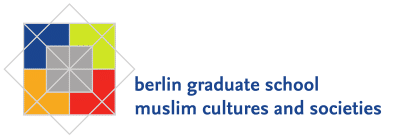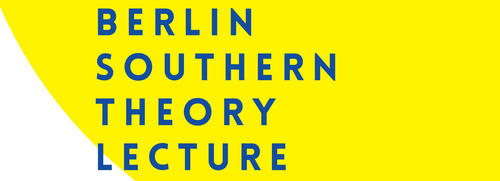Workshop Queer Openings
19.03 - 20.03.2020 “Queer Openings: Inaugural Workshop of the DGSKA-Working Group Gender and Sexualities | Queer Anthropology”
Freie Universität Berlin, in cooperation with Schwules Museum Berlin, 19-20 March 2020
Organizing Team: Omar Kasmani, Lotte Knote, Anne Kukuczka, Claudia Liebelt, Ursula Probst, Max Schnepf
Queer Anthropology
Queer anthropology, as Martin Manalansan’s (2016) recent statement suggests, has arrived. He signals to its pervasive presence in review articles, professional organisations, and course titles. Its emergence as a subdiscipline has duly afforded visibility to (queer) academics working along themes of gender and sexualities. Though we might still ask where? In the German-speaking academy, for instance, queer scholarship has a long way to go – especially when it comes to the social sciences and social and cultural anthropology in particular. Questions of context are all the more pressing in a political climate, in which right-wing populists agitate against gender studies programs at German universities and discredit the work many of us do.
Working Group Gender & Sexualities | Queer Anthropology
In 2019, the working group “Gender & Sexualities | Queer Anthropology” was founded in the German Anthropological Association (Deutsche Gesellschaft für Sozial- und Kulturanthropologie, DGSKA) with the aim to not only institutionalize the subdiscipline in the German-speaking academy but also to connect queer scholars across the board. Our inaugural workshop is a “Standortbestimmung” – a first attempt to circumscribe the positions, locations and themes of queer work being conducted within, on the limits or beyond the discipline. The theme “Queer Openings” points to our engagements with as well as our hopes and desires for queerness (Weiss 2016). It celebrates the beginning of a network for anthropologists working on queer issues. Seemingly contrary to these steps towards institutionalization, queerness –“the open mesh of possibilities” (Sedgwick 1993, 8) – has always also been a site of resistance. It bears an atmosphere and attitude of openness towards thinking and being otherwise.
About the Workshop
Our workshop hopes to bring together and enable a conversation between scholars working at various stages of their careers and with different conceptual approaches, thematic foci and methodologies within the broader field of queer anthropology. We ask: Where are the overlaps but also, the productive frictions and divergences in our respective works? Which openings and closures are to be discovered as queer thinking turns abundant, travels and arrives in new or other places, in this case the German-speaking context. What are the politics of queer theory’s reception as well as its refusal? Which routes might queer anthropology take from here and how do we collectively imagine its futures? We wish to discuss these and related matters not in the classical style of paper presentations, but in the form of moderated discussions. The workshop will close with a public roundtable event at Schwules Museum Berlin.
How to participate:
To participate in the workshop, please submit a short written statement (max. 600 words), engaging with the following questions (visual or artistic statements in support of the written statement are most welcome):
● How does your work relate to the topics of gender, sexuality and queer anthropology?
● Which forms and concepts of queer thinking are you (currently) interested in?
● How do you position yourself in relation to queer approaches?
Please send your statement to queeranthro.dgska@gmail.com until 15 February 2020.
Notification of acceptance: 28 February 2020.
Travel grants of up to EUR 50.00 per selected speaker are available upon request and for a limited number of persons. Please indicate when submitting your abstract if you would like to avail this option.
References
Manalansan IV, Martin. 2016. “Queer Anthropology: An Introduction”. Cultural Anthropology 31 (4), 595-97.
Sedgwick, Eve Kosofsky. 1993. Tendencies. Durham: Duke University Press.
Weiss, Margot. 2016. “Always After: Desiring Queerness, Desiring Anthropology”. Cultural Anthropology 31 (4), 627-38.
Zeit & Ort
19.03.2020 - 20.03.2020
Thursday, March 19th, 1 pm to 6:30 pm and Friday March 20th, 9 am to 3:30 pm; Freie Univsersität Berlin, Room K29/11, Habelschwerdter Allee 45
Public round table will take place on Friday, March 20th, 6 pm to 8 pm at Schwules Museum Berlin (Lützowstr. 73)


